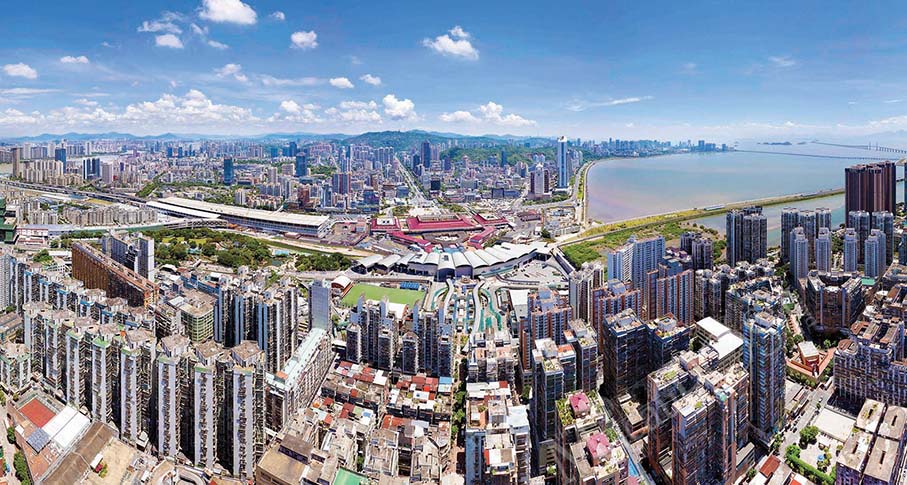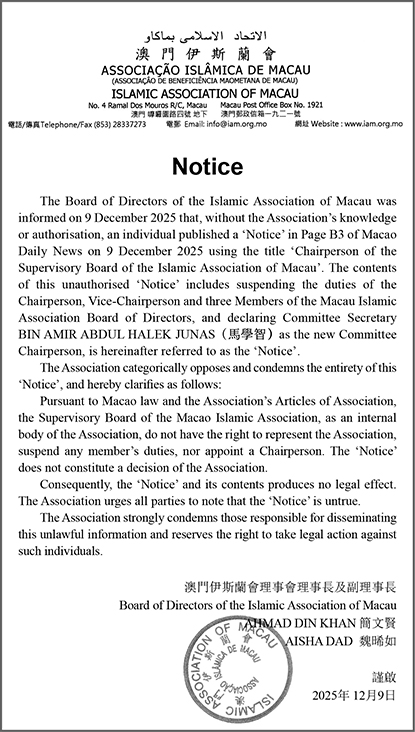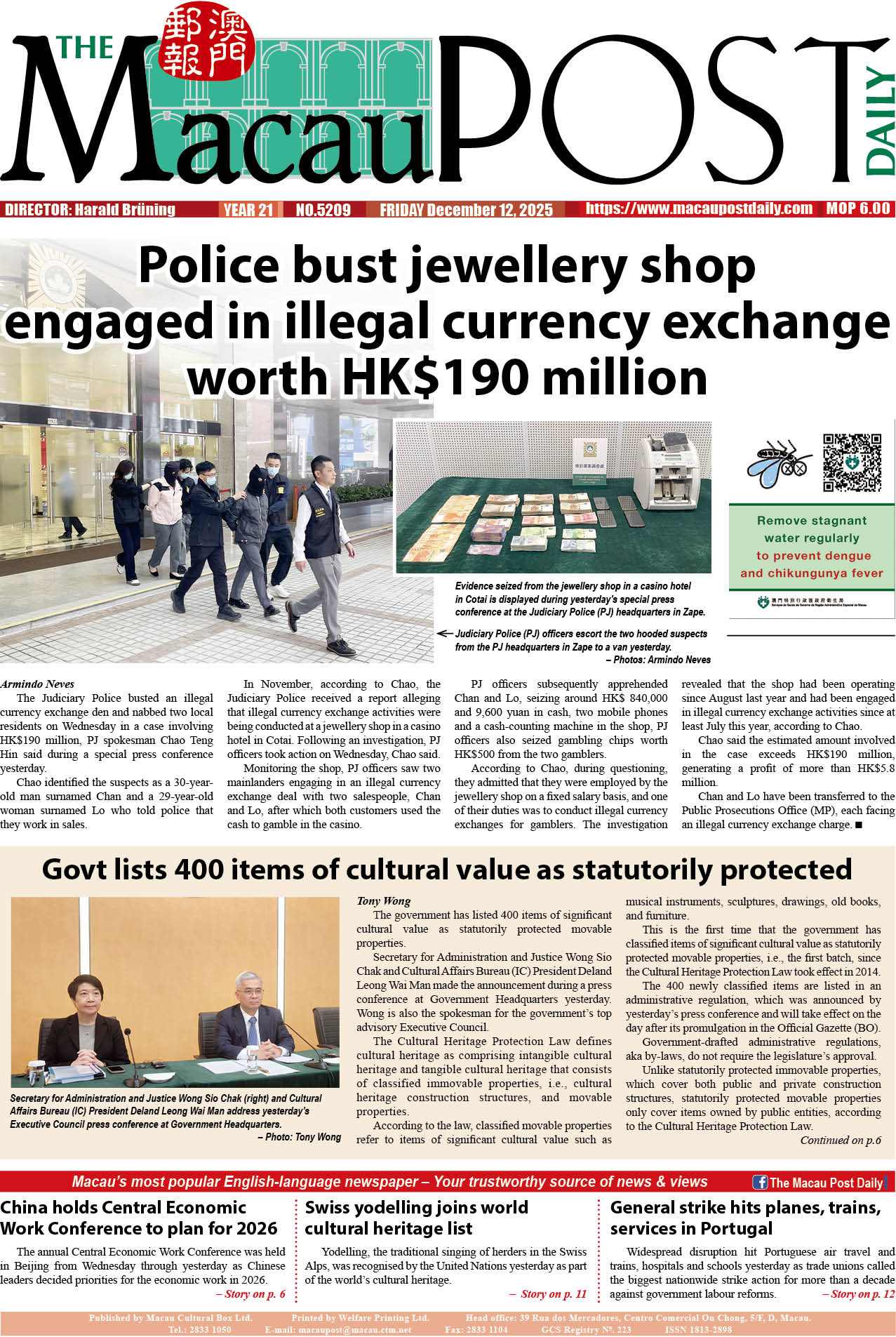The University of Macau (UM) announced yesterday that it forecasts that with the recovery of the city’s tourism sector, Macau’s economy will grow between 20.5 percent and 44.1 percent this year.
The public university announced the forecast in a statement yesterday. The university’s annual forecast on Macau’s economy is carried out by a research team consisting of economists from the Department of Economics. The GDP forecast project is administered by the university’s Centre for Macau Studies (CMS).
The statement said that “the number of visitor arrivals is expected to increase in 2023, after Macau adjusted its anti-COVID-19 policy in December 2022.”
The Macau government abandoned its long-running dynamic zero-COVID in early December. Macau suffered its first peak of widespread COVID-19 infections around the Christmas holiday, but the city’s COVID-19 situation has markedly improved since last month.
Yesterday’s UM statement said that for this year there could be different possibilities about how Macau’s civil society will be able to adapt itself to welcoming a larger number of visitor arrivals again, and about the level of willingness of people outside Macau to visit the city again.
3 scenarios
With the different possibilities, the statement said, the research team has come up with three possible scenarios with different numbers of total visitor arrivals for this year.
According to the statement, the first scenario is a cautious forecast on the number of visitor arrivals, while the second scenario is a relatively optimistic assumption, and the third scenario is the most optimistic prediction.
The research team forecasts GDP growth of 20.5 percent, 36.5 percent and 44.1 percent based on the three respective scenarios, the statement said.
In the three scenarios, according to the statement, Macau’s 2023 GDP in real terms will be 47.7 percent, 54 percent and 57 percent of the level in the pre-pandemic year of 2019.
Yesterday’s UM statement also said that Macau’s economy contracted last year due to the adverse impact of the COVID-19 pandemic and the local government’s stringent COVID-19 measures. According to official statistics, the statement pointed out, Macau’s GDP dropped 10.5 percent, 39 percent and 33.4 percent year-on-year in last year’s first, second and third quarter respectively in real terms.
The statement said that “Macau has now finally reopened its borders fully after three years’ implementation of strict border entry curbs”. However, the statement said, Macau’s economic recovery this year would still face various challenges. The statement said that the city’s labour supply could be expected to be still affected by the “lag effects” of the COVID-19 pandemic in the short term, which the statement said would hinder the growth of the city’s tourism-related sectors.
In economics, a lag effect is the amount of time between the time action is taken and an effect is realised.
According to the statement, the research team has concluded that with the low base level last year, Macau’s economy is expected to enjoy a significant recovery this year, especially in the second half of this year.
Mainland tour groups recommenced visits to Macau yesterday.

This undated aerial photo released by the University of Macau (UM) yesterday shows Macau’s northern district abutting Zhuhai.










